Heating, Cooling and Roofing Services Thurston, Lewis, Cowlitz, Mason, Pierce and Grays Harbor County
How Long Should a Home HVAC System Last?
Tinman • May 23, 2024
How Long Should a Home HVAC System Last?

When investing in a home HVAC (heating, ventilation, and air conditioning) system, one of the critical considerations is its lifespan. The longevity of an HVAC system is essential not only for budget planning but also for ensuring comfort and efficiency in your home. Typically, the lifespan of an HVAC system can vary significantly based on several factors, including the type of system, maintenance practices, and usage patterns. Here, we delve into the average lifespan of different HVAC components and what you can do to maximize their longevity.
Average Lifespan of HVAC Components
1.
Furnaces: A well-maintained furnace can last between 15 to 30 years. Gas furnaces often have a longer lifespan compared to electric ones due to the durability of their components. Regular maintenance, such as annual inspections and filter changes, can help extend the life of your furnace.
2.
Air Conditioners: Central air conditioning units typically last between 15 to 20 years. However, this can vary depending on the climate and how often the system is used. Air conditioners in hotter climates or those that are used heavily during summer months may have shorter lifespans.
3.
Heat Pumps: Heat pumps, which are used for both heating and cooling, generally last around 10 to 20 years. Their lifespan can be shorter than that of separate heating and cooling systems because they are used year-round.
4.
Boilers: Boilers have a longer lifespan, often lasting 20 to 30 years. This durability is due to their simpler mechanical structure and fewer moving parts compared to other HVAC systems.
5.
Ductless Mini-Splits: These systems usually last around 15 to 20 years. Since they are used to heat and cool specific zones in a home, their lifespan can vary based on usage and maintenance.
Factors Influencing HVAC Longevity
Several factors can influence the lifespan of your HVAC system:
1.
Maintenance: Regular maintenance is crucial for extending the life of any HVAC system. This includes changing filters, cleaning ducts, and scheduling annual professional inspections. Well-maintained systems not only last longer but also operate more efficiently, saving you money on energy bills.
2.
Usage: How frequently and intensively you use your HVAC system affects its lifespan. Systems that run constantly or are exposed to extreme weather conditions may wear out faster.
3.
Quality of Installation: Proper installation is essential for the longevity of an HVAC system. Poor installation can lead to issues such as improper airflow, increased wear and tear, and inefficiency, all of which can shorten the system’s life.
4.
Environmental Factors: The local climate and environment play a role. For instance, coastal areas with salty air can corrode components faster, while areas with high pollution can clog filters and reduce efficiency.
Maximizing HVAC Lifespan
To get the most out of your HVAC system, consider these tips:
1. Regular Maintenance:
Schedule annual check-ups with a qualified HVAC technician to inspect and tune up your system. This helps catch potential issues early before they become major problems.
2. Filter Changes:
Replace filters every one to three months, depending on usage and the type of filter. Clean filters ensure proper airflow and reduce strain on the system.
3. Thermostat Settings:
Use programmable thermostats to optimize usage and reduce unnecessary wear. Setting the thermostat to a moderate temperature when you are away can extend the system’s life.
4. Professional Installation:
Ensure your HVAC system is installed by certified professionals. A proper installation can prevent many common issues that reduce system longevity.
In conclusion, while the average lifespan of an HVAC system can range from 10 to 30 years depending on the component, proper maintenance and care can significantly extend this period. By understanding the factors that affect HVAC longevity and taking proactive steps to maintain your system, you can enjoy reliable and efficient heating and cooling in your home for many years to come.
By Tinman
•
23 May, 2024
Investing in a new roof is a significant decision for any homeowner. Beyond the immediate benefits of improved aesthetics and enhanced protection from the elements, one of the most critical considerations is whether a new roof can increase the value of your home. The answer is generally yes, but the extent of the value added can depend on various factors. Here, we explore how a new roof impacts home value, the benefits it offers, and what homeowners should consider before making this investment. Enhanced Curb Appeal First impressions matter in real estate. A new roof dramatically enhances a home's curb appeal, making it more attractive to potential buyers. A well-maintained, modern roof can make a property stand out, signaling that the home has been well cared for. This improved visual appeal can make a significant difference in competitive housing markets, potentially leading to a faster sale and a higher selling price. Increased Market Value According to the National Association of Realtors, a new roof can significantly boost a home's market value. Homeowners can often recoup a substantial portion of the cost of a new roof when they sell their home. On average, a new roof can return about 60-70% of its cost upon resale. This increase in market value makes a new roof a wise investment, especially if you plan to sell your home in the near future. Improved Energy Efficiency Modern roofing materials and technologies can enhance a home’s energy efficiency. Features such as better insulation, reflective coatings, and advanced materials can reduce heating and cooling costs. Energy-efficient homes are highly attractive to buyers looking to save on utility bills and reduce their environmental footprint. Highlighting these energy-saving benefits can further boost your home’s value and appeal. Addressing Structural Concerns A new roof also addresses potential structural issues that could become major problems down the line. Roof leaks, water damage, and mold growth can severely affect a home's structural integrity. By replacing an old, damaged roof, you are essentially providing a clean bill of health for the house. This reassures buyers that they won't face significant repair costs shortly after purchase, making your home more desirable and justifying a higher asking price. Warranty and Long-Term Durability New roofs often come with warranties that can span 20 to 30 years or more. These warranties offer peace of mind to potential buyers, knowing that they won’t have to worry about roofing issues for a long time. This added security can be a strong selling point, making your home more attractive and increasing its market value. Factors to Consider While a new roof can indeed increase home value, several factors should be considered: Quality of Materials: Investing in high-quality roofing materials will offer better returns. Premium shingles, metal roofing, or tiles can add more value than basic asphalt shingles. Professional Installation: Ensure the roof is installed by reputable professionals. Poor installation can lead to problems that diminish the value added by the new roof. Local Market Conditions: The extent of value addition can vary based on local real estate markets. In some areas, the return on investment might be higher due to greater demand for updated, well-maintained homes. Timing: If you plan to sell your home soon, a new roof can be a strategic improvement. However, if you're not planning to sell for many years, consider whether the current roof can be repaired and maintained instead. Conclusion In summary, a new roof can indeed increase your home’s value by enhancing curb appeal, improving energy efficiency, addressing structural concerns, and providing long-term durability with warranties. However, the extent of this value addition depends on factors such as the quality of materials used, the professionalism of the installation, and local market conditions. For homeowners looking to maximize their investment and appeal to potential buyers, a new roof is a smart upgrade that offers both immediate and long-term benefits.
By Tinman
•
23 May, 2024
In recent years, the adoption of solar panels has surged as homeowners seek to reduce their carbon footprint and save on energy costs. One question often asked by potential solar panel adopters is whether installing solar panels will add value to their home. The answer is a resounding yes, but the extent of this added value can depend on various factors. Here, we explore how solar panels impact home value, the benefits they provide, and considerations for homeowners contemplating this investment. Increased Property Value Multiple studies have shown that homes with solar panel installations sell for a premium compared to those without. For example, a study by the Lawrence Berkeley National Laboratory found that, on average, solar panels can add around $15,000 to the value of a home. This increase in value is due to the perceived benefits and savings associated with solar energy. Energy Savings and Cost Efficiency One of the primary reasons solar panels add value to a home is the potential for significant energy savings. Homeowners can reduce their monthly electricity bills substantially by generating their own power. Over the lifespan of a solar panel system, these savings can add up to thousands of dollars. Prospective buyers are often willing to pay more for a home that promises lower utility costs. Environmental Impact Solar panels also appeal to environmentally conscious buyers. As awareness of climate change grows, more people are looking to reduce their environmental impact. A home with solar panels is an attractive option for those wanting to live a greener lifestyle. This added appeal can translate into higher property value and a quicker sale. Tax Incentives and Rebates Government incentives and rebates for solar panel installations can also enhance home value. Federal, state, and local programs often provide tax credits and rebates to offset the initial cost of installing solar panels. These incentives not only make solar energy more affordable but also increase the overall return on investment. When selling a home, these incentives can be highlighted as additional financial benefits to prospective buyers. Market Demand The demand for energy-efficient homes is on the rise. In many real estate markets, buyers are actively seeking properties with green features, including solar panels. This demand can drive up the value of homes with such installations. Additionally, in competitive markets, a solar-powered home can stand out, making it more attractive to potential buyers. Longevity and Low Maintenance Solar panels are designed to be durable and require minimal maintenance. Most systems come with warranties that can last 20 to 25 years, ensuring long-term benefits and reliability. This longevity is another selling point, as buyers know they are investing in a sustainable and long-lasting energy solution. Considerations for Homeowners While solar panels generally add value, homeowners should consider a few factors before installation: 1. Location: The value added by solar panels can vary by region. Homes in sunny areas with high electricity costs will benefit more than those in less sunny regions with lower energy costs. 2. System Ownership: Owned solar panel systems add more value than leased systems. Buyers prefer systems they own outright rather than taking over lease payments. 3. Home Appraisal: Ensure that the appraiser recognizes the value of the solar panel system during the home evaluation. Proper documentation and clear communication about the benefits can help achieve a fair appraisal. 4. Market Conditions: Local real estate market conditions will affect how much value solar panels add. In areas where energy efficiency is a high priority, the value addition can be more significant. Conclusion In summary, solar panels do add value to a home, offering numerous financial and environmental benefits. They can lead to substantial energy savings, attract eco-conscious buyers, and make a home stand out in the real estate market. Homeowners considering solar panels should evaluate their specific circumstances and local market conditions to maximize the potential value addition. By investing in solar energy, not only do you contribute to a more sustainable future, but you also enhance the appeal and worth of your property.
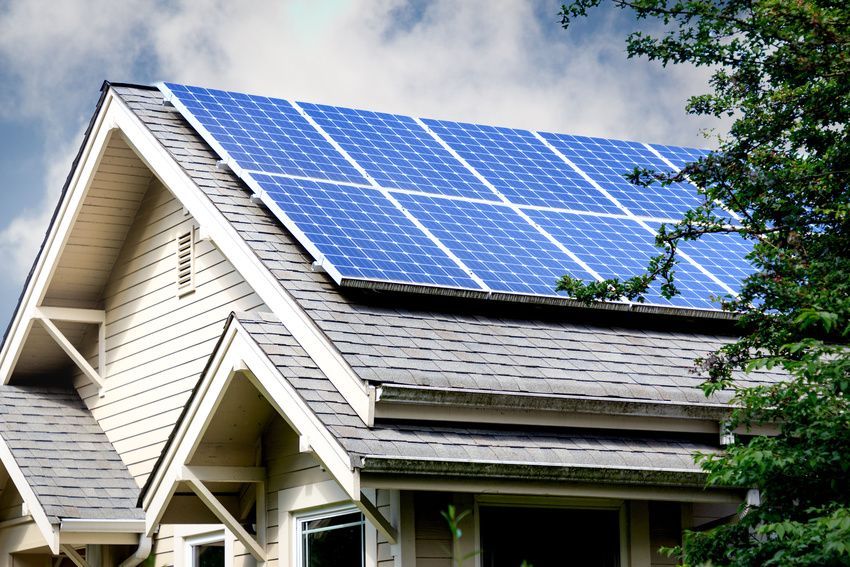
By Tinman
•
17 Apr, 2024
Welcome to our blog, where we shed light on the incredible benefits of solar energy and how it can transform your home. At [Your Solar Installation Service], we're passionate about helping homeowners harness the power of the sun to reduce energy costs and environmental impact. In this post, we'll explore the numerous advantages of solar installation and why it's a smart investment for your home.
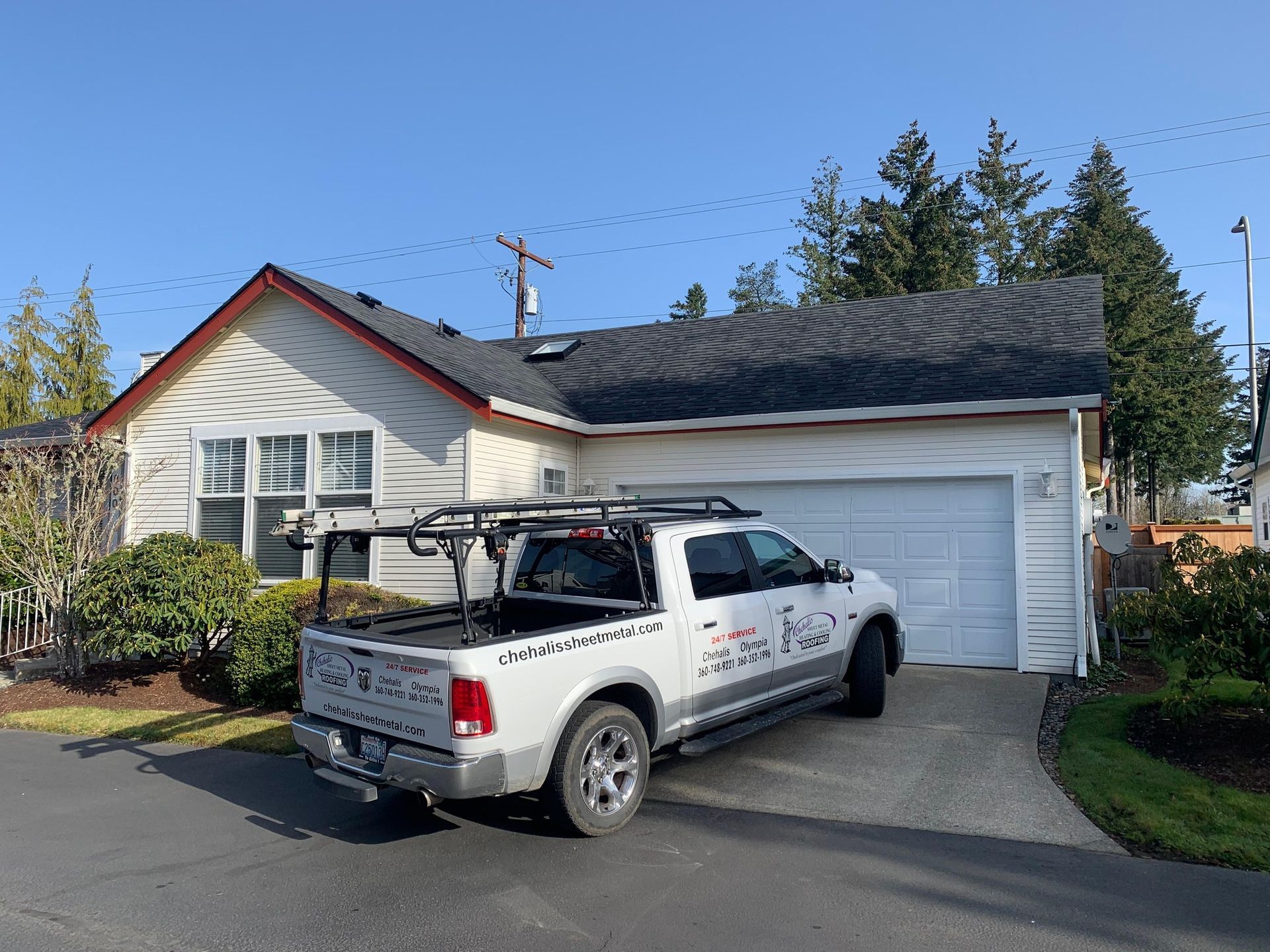
By Tinman
•
17 Apr, 2024
Welcome to our blog, where we're dedicated to ensuring the safety and longevity of your home's roof. At CSM Roofing, we understand the importance of a well-maintained roof in protecting your property and loved ones. In this post, we'll explore the essentials of roof repair, from common issues to preventive measures you can take to safeguard your investment. Common Roof Problems: Leaks: One of the most common issues homeowners face is roof leaks. Whether due to damaged shingles, flashing, or worn-out sealant, leaks can lead to water damage, mold growth, and structural issues if left unaddressed. Missing or Damaged Shingles: Over time, shingles can become loose, cracked, or missing altogether, leaving your roof vulnerable to water infiltration and further damage. Flashing Damage: Flashing is installed around roof penetrations such as chimneys, vents, and skylights to prevent water from seeping into the structure. Damage to flashing can compromise its effectiveness and lead to leaks. Gutter Issues: Clogged or damaged gutters can impede proper water drainage, causing water to pool on the roof and potentially seep into the home's interior. Poor Ventilation: Inadequate roof ventilation can lead to moisture buildup in the attic, promoting the growth of mold and mildew and compromising the structural integrity of the roof. The Importance of Prompt Repairs: Addressing roof issues promptly is crucial to preventing further damage and costly repairs down the line. Even minor issues can escalate quickly, especially during inclement weather. Regular inspections and timely repairs can help prolong the lifespan of your roof and protect your home from water damage and other hazards. Preventive Maintenance Tips: Schedule Regular Inspections: Professional roof inspections can help identify issues early on and prevent them from worsening over time. Aim to schedule inspections at least once a year, preferably in the spring or fall. Keep Gutters Clean: Regularly clean and inspect your gutters to ensure proper water drainage and prevent water from pooling on the roof. Trim Overhanging Branches: Overhanging branches can rub against the roof and cause damage to shingles. Keep trees trimmed to prevent this from happening. Address Minor Repairs Promptly: If you notice any signs of damage, such as loose or missing shingles, damaged flashing, or leaks, don't wait to address them. Prompt repairs can prevent further damage and save you money in the long run. Your roof plays a vital role in protecting your home and everything inside it. By staying proactive with regular inspections and prompt repairs, you can ensure that your roof remains in top condition and continues to provide reliable protection for years to come. If you need professional roof repair services, don't hesitate to contact CSM Roofing for expert assistance.
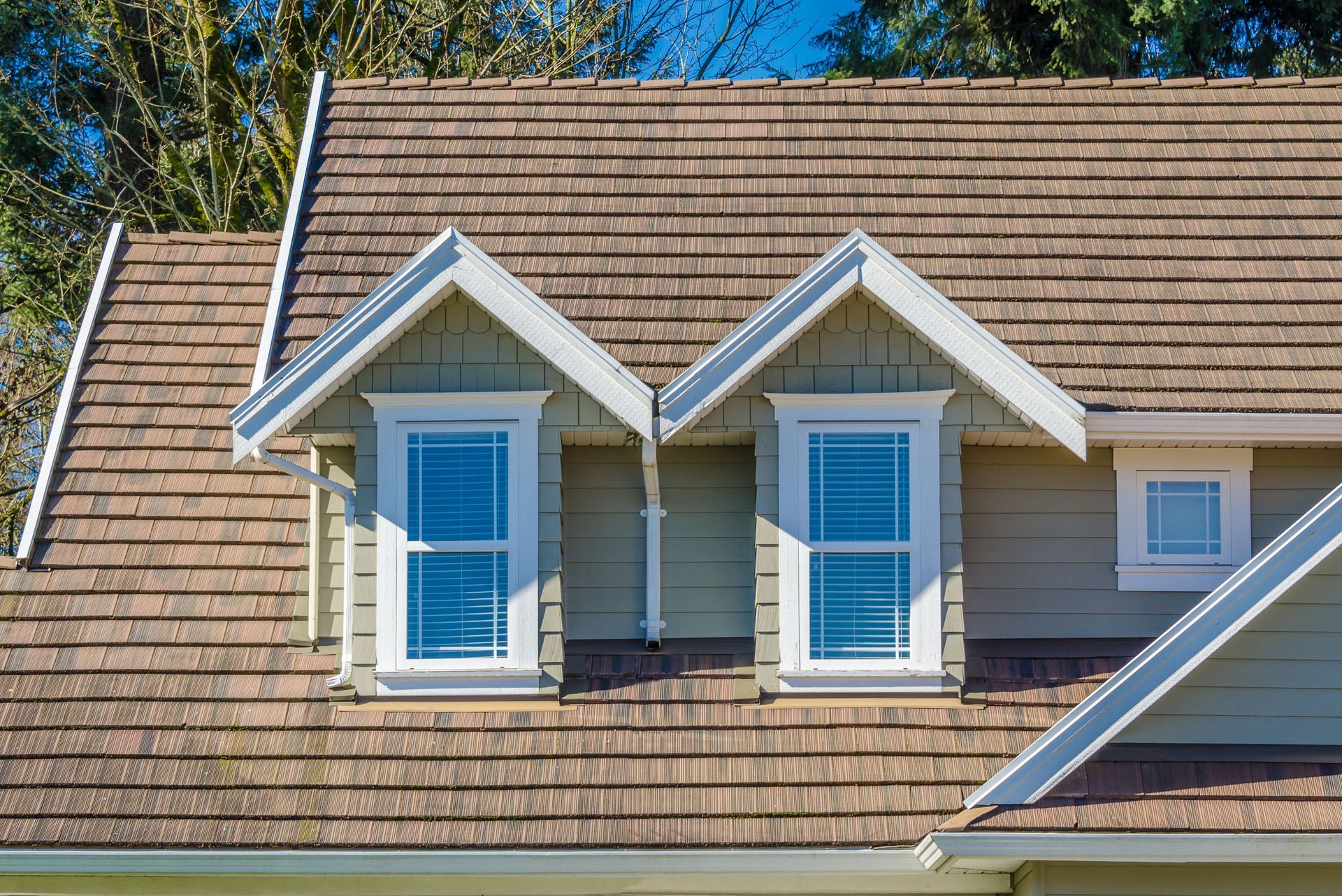
By Tinman
•
19 Mar, 2024
Choosing the right roofing material is a critical decision for homeowners. Not only does your roof protect your home from the elements, but it also contributes significantly to its overall aesthetics and curb appeal. With a wide array of options available, selecting the best roofing material can be daunting. In this blog post, we'll discuss some expert tips to help you navigate the process and make an informed decision that suits your needs, preferences, and budget. Consider Climate and Weather Conditions: One of the primary factors to consider when choosing a roofing material is your local climate and weather patterns. Different materials perform better in certain climates than others. For instance, asphalt shingles are popular in areas with moderate climates, while metal roofing is more suitable for regions prone to high winds, heavy rainfall, or extreme temperatures. Consult with your roofing contractor to determine which materials are best suited for your specific climate conditions. Evaluate Durability and Longevity: Investing in a durable roofing material is essential to ensure the long-term protection and structural integrity of your home. Consider the lifespan of various roofing materials and weigh their durability against factors such as maintenance requirements and upfront costs. While asphalt shingles are affordable and widely used, they typically have a shorter lifespan compared to materials like metal, slate, or clay tiles, which can last several decades with proper care. Assess Aesthetic Appeal: Your roof plays a significant role in defining the overall appearance and curb appeal of your home. Take into account the architectural style of your house and choose a roofing material that complements its design aesthetic. Whether you prefer the classic look of asphalt shingles, the rustic charm of cedar shakes, or the sleek modernity of metal roofing, select a material that enhances the visual appeal of your home while also reflecting your personal taste and style. Factor in Maintenance Requirements: Every roofing material has unique maintenance requirements that homeowners should be aware of. Consider the amount of time and effort you're willing to invest in maintaining your roof over its lifespan. While some materials may require regular inspections, cleaning, and minor repairs, others offer low-maintenance options that are more hands-off. Discuss maintenance considerations with your roofing contractor to ensure that you choose a material that aligns with your lifestyle and maintenance preferences. Budget and Cost Considerations: Budget constraints often play a significant role in the decision-making process when selecting a roofing material. Assess the upfront costs as well as long-term expenses associated with each option, including installation, maintenance, and potential repairs. While certain materials may have a higher initial investment, they may offer greater durability and energy efficiency, leading to cost savings over time. Work with your roofing contractor to explore different pricing options and financing solutions that fit within your budget. Choosing the right roofing material for your home requires careful consideration of various factors, including climate, durability, aesthetics, maintenance, and budget. By following these expert tips and consulting with a reputable roofing contractor, you can make an informed decision that ensures the protection, beauty, and value of your home for years to come. Invest time upfront in researching and evaluating your options to find the perfect roofing solution that meets your specific needs and preferences.
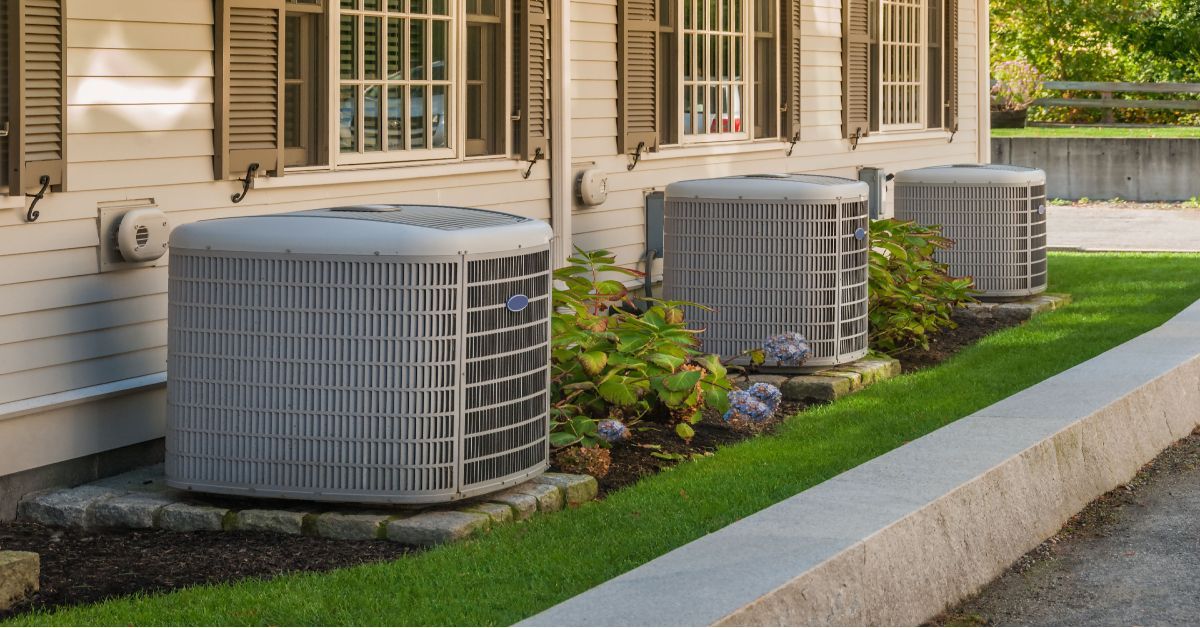
By Tinman
•
19 Mar, 2024
Whether you're a homeowner looking to upgrade your system, a business owner seeking efficient climate control, or simply curious about how HVAC technology works, you've come to the right place. In this blog, we'll delve into the world of Heating, Ventilation, and Air Conditioning (HVAC) to provide you with insights, tips, and tricks to enhance your comfort and efficiency. Our goal is not only to educate but also to help our readers make informed decisions when it comes to their HVAC needs. Understanding HVAC Basics In this chapter, we'll cover the fundamental components of HVAC systems, including heaters, air conditioners, ventilation systems, and thermostats. We'll explain how each component works individually and how they work together to maintain optimal indoor comfort levels. The Importance of Proper HVAC Maintenance Regular maintenance is crucial for ensuring the longevity and efficiency of your HVAC system. In this chapter, we'll discuss the importance of scheduling routine maintenance checks, changing filters, and addressing minor issues before they escalate into major problems. By following our maintenance tips, you can extend the lifespan of your HVAC system and avoid costly repairs. Energy-Efficient HVAC Solutions In today's eco-conscious world, energy efficiency is more important than ever. We'll explore various energy-efficient HVAC options, such as programmable thermostats, high-efficiency furnaces, and ductless mini-split systems. By investing in energy-efficient upgrades, you can not only reduce your carbon footprint but also save money on your utility bills. Choosing the Right HVAC System for Your Home or Business With so many HVAC options available on the market, selecting the right system can be overwhelming. In this chapter, we'll provide you with guidance on choosing the best HVAC system for your specific needs and budget. Whether you're retrofitting an older home or designing a new commercial building, we'll help you navigate the decision-making process with confidence. Common HVAC Problems and Solutions Even the most well-maintained HVAC systems can encounter issues from time to time. From strange noises to uneven heating or cooling, we'll identify common HVAC problems and offer practical solutions for troubleshooting them. By understanding the root causes of these issues, you can take proactive steps to prevent them from recurring in the future. HVAC Tips for Every Season Each season brings its own set of challenges for HVAC systems. In this chapter, we'll share seasonal tips and maintenance tasks to help you keep your HVAC system running smoothly year-round. Whether it's preparing your air conditioner for summer or winterizing your furnace for the colder months, we've got you covered. We hope this guide has been informative and helpful in demystifying the world of HVAC. By implementing the tips and strategies outlined in this blog, you can enhance the comfort, efficiency, and longevity of your HVAC system. Remember, a well-maintained HVAC system is the key to a comfortable and healthy indoor environment for you and your loved ones. If you have any questions or need further assistance, don't hesitate to reach out to us – your trusted HVAC experts! At CSM, we're dedicated to providing top-notch HVAC solutions for residential and commercial customers alike. With years of industry experience and a commitment to customer satisfaction, we're here to meet all of your heating, cooling, and ventilation needs. Contact us today to learn more about our services and how we can help you achieve ultimate comfort and efficiency in your home or business.
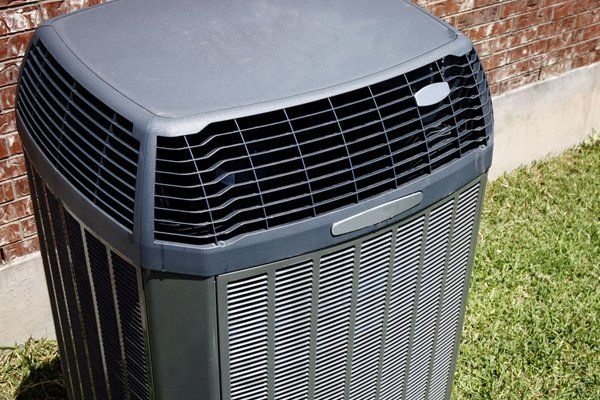
By Tinman
•
07 Feb, 2024
With summer approaching, the rising temperatures and sunny days are a sure sign that it's time to check if your air conditioner is ready for action. Ensuring your AC unit is in top-notch condition before the heatwave hits is crucial for your comfort. Don't wait until mid-summer to address any issues—get ahead of the game! Discover the four advantages of scheduling your AC maintenance early in Tumwater, Lacey, Chehalis, WA, and the surrounding areas. 1. Avoid Future Repairs In the scorching Washington summer, a functioning AC is a lifeline. Breakdowns or malfunctions during a heatwave can leave you sweating in discomfort. Servicing your system before summer kicks in helps identify and address potential problems, such as faulty parts or a dirty filter before they become major issues. Our skilled technicians will conduct a thorough inspection, utilizing their expertise to keep your AC unit in peak condition, minimizing the risk of mid-summer frustrations. 2. Increase the Efficiency of Your System Regular maintenance not only prevents breakdowns but also enhances the overall efficiency of your HVAC system. By reducing stress on its components, your unit can last longer and operate more efficiently. Annual upkeep extends the lifespan of your air conditioner, ultimately saving you money on energy bills. 3. Improve Your Home’s Air Quality A well-maintained HVAC system plays a crucial role in maintaining clean indoor air and minimizing health issues caused by air pollutants. Operating your AC at peak efficiency allows you to keep windows closed, preventing allergens and pollutants from entering your home. A finely tuned air conditioner actively filters out any sneaky pollutants, ensuring your home remains a haven of cool, fresh air. 4. Beat the Rush! Waiting until the peak of the AC season to address issues may result in longer wait times for service due to high demand. Stay ahead of the curve by scheduling maintenance early, ensuring prompt and hassle-free service. Don't let bothersome repairs interrupt your enjoyment of a cool and comfortable home. Stay cool and beat the rush by scheduling your air conditioner service with the professionals at CSM Heating Cooling & Roofing. At CSM Heating Cooling & Roofing, we prioritize your year-round comfort. Schedule your tune-up or inspection service today by filling out our online form or give us a call. Keep your cool this summer!

By Tinman
•
26 Jan, 2024
Unleashing the Power of the Sun: Solar energy is a clean, renewable resource that holds immense potential for powering homes and businesses. By harnessing sunlight and converting it into electricity, solar panels offer a sustainable alternative to traditional energy sources, reducing carbon emissions and reliance on fossil fuels. Comprehensive Solutions from CSM : At CSM Heating, Cooling, & Roofing, we're committed to providing turnkey solutions for all your home improvement needs. Our experienced team specializes in solar panel installations , seamlessly integrating solar power systems into your property to maximize energy production and savings. Customized Designs for Every Home: We understand that every home is unique, which is why we offer customized solar panel designs tailored to your specific energy needs and architectural features. Whether you have a pitched roof, flat roof, or ample yard space for ground-mounted panels, our experts will design a solution that maximizes your solar potential. Professional Installation Excellence: When it comes to solar panel installations , precision and expertise are paramount. Our certified technicians have the knowledge and experience to ensure seamless installation, from assessing your property and designing the optimal system to handling permits and grid interconnection. With CSM, you can trust that your solar panels will be installed safely, efficiently, and to the highest standards. Maximizing Savings with Solar Power: One of the most compelling benefits of solar panel installations is the potential for long-term cost savings. By generating clean electricity on-site, you can reduce or even eliminate your monthly energy bills while also taking advantage of financial incentives such as tax credits and rebates. With CSM's solar solutions, you can enjoy significant savings while reducing your carbon footprint. Monitoring and Maintenance for Peace of Mind: After your solar panels are installed , our commitment to excellence doesn't end there. We provide ongoing monitoring and maintenance services to ensure that your solar power system continues to perform at its best. Our monitoring systems allow you to track energy production in real time, while our routine maintenance services help prevent issues and prolong the lifespan of your solar panels. Join the Solar Revolution with CSM: Ready to join the solar revolution and take control of your energy future? Contact CSM Heating, Cooling, & Roofing today to learn more about our expert solar panel installation services . Together, we can harness the power of the sun to create a brighter, more sustainable tomorrow for generations to come. At CSM Heating, Cooling, & Roofing, we're proud to offer professional solar panel installations that empower homeowners to embrace renewable energy and enjoy substantial savings. With our expertise, personalized approach, and commitment to excellence, we're here to help you make the switch to solar power seamlessly. Upgrade your home with solar energy today and take the first step towards a greener, more sustainable future with CSM.
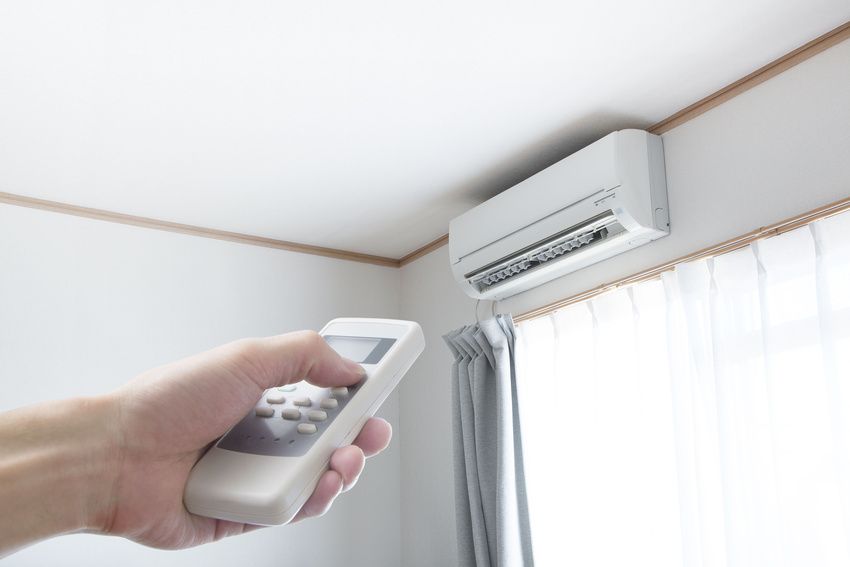
By Tinman
•
26 Jan, 2024
Energy Efficiency and Cost Savings: Ductless mini split systems are renowned for their energy efficiency. With individual air handlers in each room, you can control the temperature independently, preventing energy wastage in unused spaces. This zoned heating and cooling capability not only enhances comfort but also leads to significant cost savings on energy bills. Installation Flexibility: One of the primary advantages of ductless mini split systems is their installation flexibility . Unlike traditional HVAC systems, which rely on ductwork, these systems require only a small hole to connect the indoor and outdoor units. This makes them ideal for both new constructions and retrofitting into existing homes, providing homeowners with a wide range of installation options . DIY vs. Professional Installation: While some adept homeowners may consider a DIY approach to installing a ductless mini split system, professional installation is often recommended. Certified technicians possess the expertise to accurately size the units, optimize placement, and ensure the system operates at peak efficiency. Professional installation also typically comes with warranties, providing peace of mind for homeowners. Zoning and Customization: Ductless mini split systems allow for precise temperature control in individual rooms or zones, catering to the specific needs of each space. This zoning capability not only increases comfort but also contributes to additional energy savings. Homeowners can customize the climate in each room, accommodating preferences and occupancy levels. Enhanced Indoor Air Quality: With no ducts to accumulate dust, allergens, and contaminants, ductless mini split systems contribute to improved indoor air quality. The multi-stage filtration systems in these units trap particles, ensuring that the air circulating in your home is clean and healthy. Smart Technology Integration: Many modern ductless mini split systems come equipped with smart technology features, allowing for remote control through mobile apps or integration with home automation systems. This adds an extra layer of convenience, enabling homeowners to manage their climate control settings effortlessly. Seasonal Performance: Ductless mini split systems excel in both heating and cooling, making them versatile solutions for year-round comfort. With efficient heat pump technology, these systems can extract heat from the outdoor air even in cold weather, providing effective and economical heating during the winter months. Ductless mini split systems have revolutionized the way we approach home comfort. Their energy efficiency, installation flexibility , and customizable zoning make them a compelling choice for homeowners seeking a modern, effective HVAC solution. Whether you opt for professional installation or choose to embark on a DIY project, the benefits of ductless mini split systems are sure to enhance your home's comfort and efficiency. Contact us today for a free mini split system consultation and estimate .
HOURS
This is a placeholder for the Yext Knolwedge Tags. This message will not appear on the live site, but only within the editor. The Yext Knowledge Tags are successfully installed and will be added to the website.
Monday
Tuesday
Wednesday
Thursday
Friday
Saturday
Sunday
This is a placeholder for the Yext Knolwedge Tags. This message will not appear on the live site, but only within the editor. The Yext Knowledge Tags are successfully installed and will be added to the website.
2 Great Locations to Serve You
CSM Heating, Cooling & Roofing
6135 Capital Blvd
Tumwater, WA 98501
(360) 352-1996
Chehalis Sheet Metal
350 SW Riverside Dr
Chehalis, WA 98532
(360) 298-7515
Hi. Do you need any help?
Privacy Policy
| Do Not Share My Information
| Conditions of Use
| Notice and Take Down Policy
| Website Accessibility Policy
© 2024
The content on this website is owned by us and our licensors. Do not copy any content (including images) without our consent.






Share On: